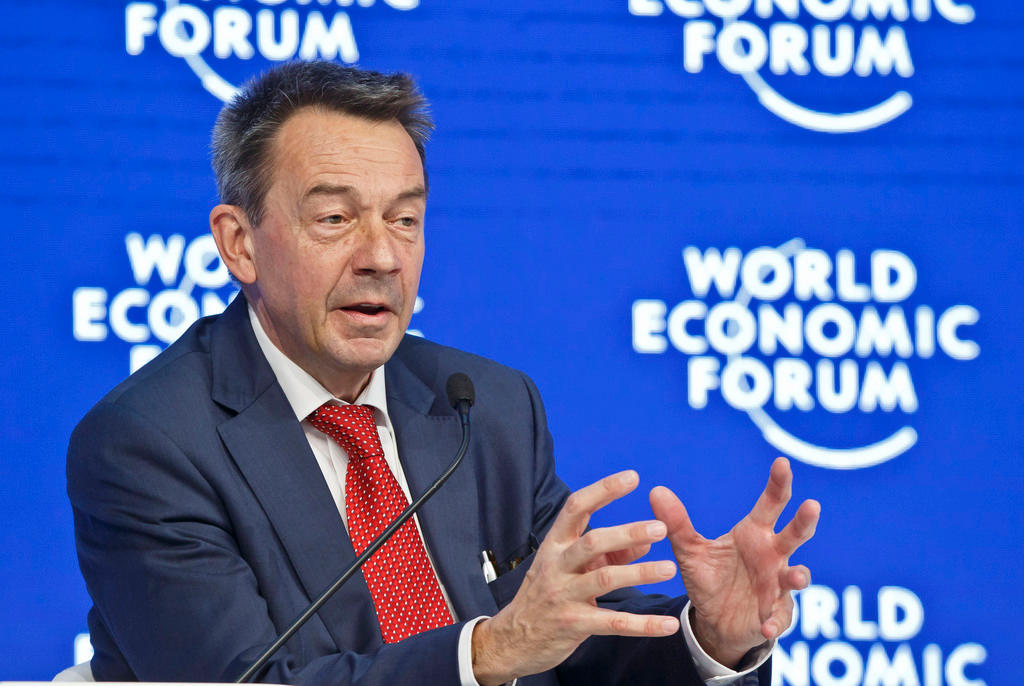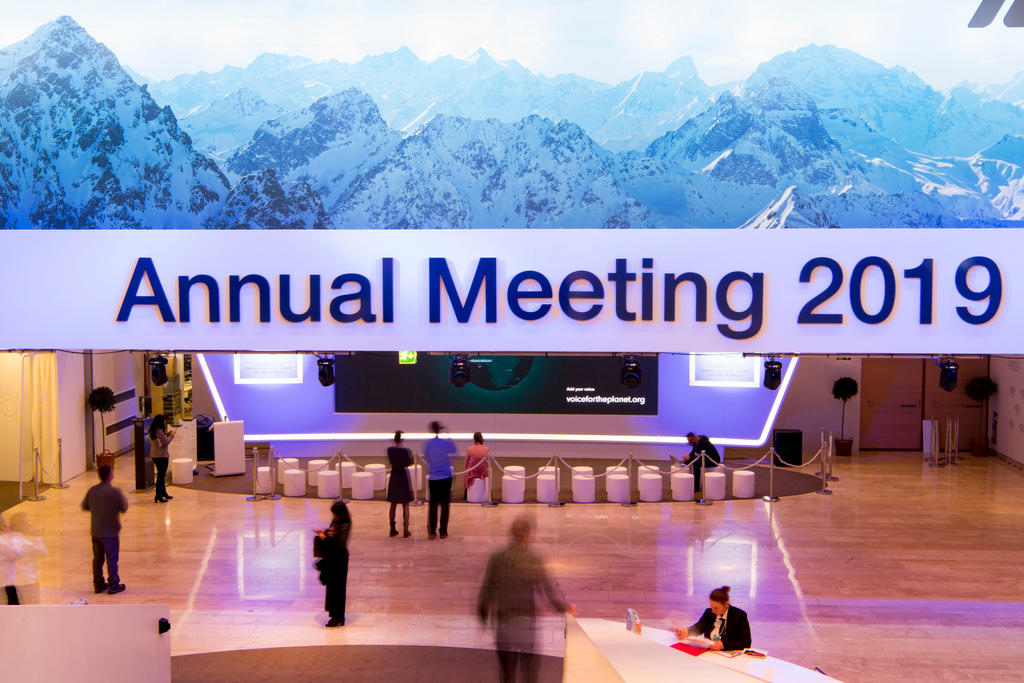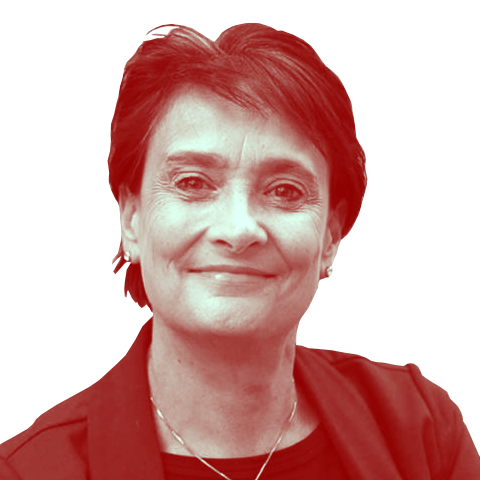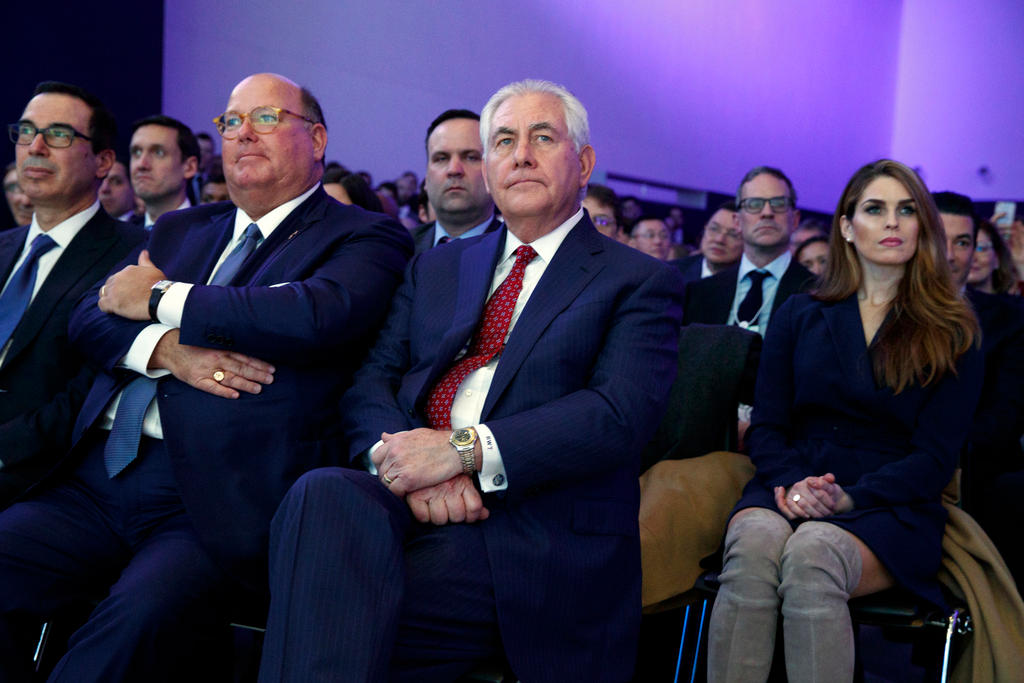Humanitarians and Davos: Pure as the driven snow?

It’s that time of year again: the moneyed, the powerful, the famous, some who are all three, some who strive hopefully towards just one of those qualities, all are making their annual pilgrimage up the valley to Davos and the World Economic Forum.
It’s an odd event, the forum, and not the most professionally satisfying for a journalist. I spent years reporting on it before a merciful editor decided it was someone else’s turn.
The problem for us in the media is that, while there are plenty of newsmakers attending, from prime ministers, to billionaires, to despots, most, during their time in Davos, are more interested in networking than they are in answering awkward questions from news reporters.
But it’s a networking opportunity the world’s humanitarian leaders rarely miss. My first ever Davos coincided with my first year as Geneva correspondent, and I remember being surprised that, in the run up to the forum, I was receiving multiple emails from aid agencies informing me that their senior officials would be going, and offering ‘exclusive’ interviews.
What’s in it for aid agencies?

More
WEF 2019: Where global interdependence goes from here
In fact, as I soon learned, the world’s humanitarian leaders view Davos as an essential event, one where they can approach the governments of countries in conflict and have a quiet word about humanitarian needs, or peace promotion. Or where they can urge the heads of multinationals to adopt more ethical, sustainable business practices.
Above all, with the growth of public private partnership, Davos is the place to hammer out a sweet deal between a perennially cash strapped aid agency and a company looking to burnish its image with some public do-goodery.
Celebrity causes
A celebrity always helps. Think Angelina Jolie sweeping in, dressed like an extra from Dr Zhivago, to urge support for refugees, while Kofi Annan applauded.
Or Sharon Stone, dramatically leaping to her feet in a darkened conference room (handily the spotlight found her uncannily quickly) to promise $10,000 for anti-malaria bed nets and demanding similar donations from her fellow audience members. She raised over a million dollars in five minutes.
A clever stunt is always good too. I once went to an evening event hosted by the World Food Programme. High ranking guests were promised fine dining, and the chance to learn about WFP’s good works.
Eager millionaires arrived to find a wooden shack, where they were served a kind of porridge, the very same porridge the WFP provides to millions of school children. The free meals are not just a weapon against malnutrition, but an incentive to impoverished parents to send their children to school rather than keep them home to fetch water or pick crops.
Unsurprisingly, the WFP’s guests were not entirely impressed with the porridge; stealthy glances at Rolex Oysters, discreet whispers enquiring as to the availability of champagne ensued. But it was all part of the plan: after a mere twenty minutes of porridge the back walls of the shack fell away to reveal a gilded dining room, liveried waiters, and a five course banquet hosted by minor European royalty.
The strategy clearly works: the WFP has multiple corporate partnerships, among them Pepsico, Unilever, and Vodafone.
Ethical compromise?
Over the years the humanitarian element at Davos has increased significantly. Conflict, climate change, inequality, poverty and discrimination are regular themes. Nevertheless there are many who question the value, and the ethics, of humanitarian leaders going to Davos.
For a start, although aid agencies do not have to pay the WEF membership fee, they do have to pay for those high price Davos hotels, and they have to profile themselves by hosting often costly events.
This year at least some agencies may benefit from a few cut price hotel suites now that President Trump and his gargantuan entourage have pulled out. But still, some will ask why the UN Human Rights Commissioner is attending an event whose headline VIP is Brazil’s new president Jair Bolsonaro, a man who has boasted that some women are too ‘ugly’ to rape, and who has suggested that the mistake made by Brazil’s former military dictatorship was to ‘torture, but not kill.’
ICRC pragmatism
The desire for aid agencies to be as pure as the driven snow in Davos is one that Peter Maurer, the ever-pragmatic president of the International Committee of the Red Cross, has confronted head on.
Maurer is not just a regular guest at the WEF, since 2014 he has been an elected member of its foundation board. He described the rationale for the move like this: “Although the ICRC and the World Economic Forum have separate missions, they both are centred on collaboration across sectors and between various actors in order to improve the state of the world.”
“As ICRC president, I hope to share with the board our experience in assisting and protecting vulnerable populations worldwide and to strengthen their resilience.”
Nevertheless the relationship has come in for criticism, including from former senior officials in the ICRC itself. Some have suggested the ICRC might ‘lose its soul’ in the pursuit of partnerships with big business, others fear Maurer’s seat on the WEF board is a step too far. The ICRC’s watch words are neutrality and impartiality, and what’s more, its delegates in conflict zones depend on those qualities, uncompromised, in order to work meaningfully, and in safety.
Humanitarian Investing Initiative
But, as the world’s humanitarian crises grow, aid agencies are constantly looking for new ways to support the lifesaving work they do. The bottom line: they can’t afford not to go to Davos, however squeamish some may feel.
In that respect Peter Maurer’s strategy of not just asking for help, but of joining the board of the decision makers who might offer help, could pay off, not just financially, but ethically.
This year the WEF is launching a new ‘humanitarian investing initiative’. With input from the ICRC and the World Bank, it will examine a perennial problem for aid and development: how to invest sustainably, for the long term, in fragile, conflict prone regions.
The corporate world will be brought in, and invited to ‘support and co-design more effective and shared solutions’. We may not see the results of this strategy for years, even decades, but both humanitarian and business leaders want to give it a try.
It’s easy to be cynical about Davos, to have a laugh at the stars, the needlessly wealthy, and the wannabes both swanning about in the snow.
But the fact is that the ICRC, or UN aid agencies, will not be the ones rebuilding Syria or Yemen, kick-starting the economies of countries finally emerging from catastrophic war.
Governments, and big business, will be the ones to do that. So they might as well take some advice from humanitarian community on how to do it right.
You can follow Imogen Foulkes on twitter at @imogenfoulkes, and send her questions and suggestions for UN topics.

In compliance with the JTI standards
More: SWI swissinfo.ch certified by the Journalism Trust Initiative


You can find an overview of ongoing debates with our journalists here . Please join us!
If you want to start a conversation about a topic raised in this article or want to report factual errors, email us at english@swissinfo.ch.